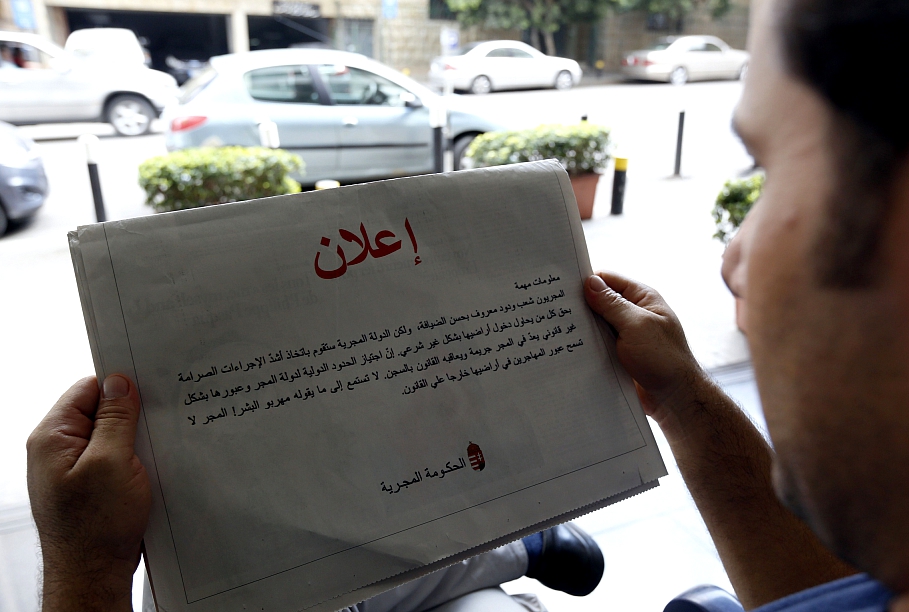Even though Latvia will try selecting refugees who know foreign languages to facilitate communication with them, it's likely that a part of the people to be admitted will only speak Arabic.
Hosam Abu Meri thinks that it's very important that people are explained their rights and opportunities in Latvia in their native language. That's why speakers of Arabic, who will consult refugees and help them integrate within the society, will be much in need. The problem is that there are very few of such people in Latvia.
"If I were told I need a hundred [speakers of Arabic], I cannot get them hundred. But if it's ten to fifteen people, of whom part will be busy all day, another part one once a week, and another part a few hours a day, then we can compensate it, and help them. Our [representatives] of the Arabic Culture Center, of the Arab culture, who speak Russian and Latvian, and Arabic of course, as a mother tongue, they can help dealing with this problem," said Abu Meri.
He said he has received calls from his Lithuanian colleagues who want to find speakers of Arabic to work with the refugees. So other countries are facing the same problem. If there's a lack of interpreters, they could be found in Russia, though it'd be expensive.
The Ministry of Culture is tasked with integrating refugees, and the ministry has delegated the task to the Asylum Safe House (Patvērums Droša Māja). Representatives from the NGO said that there are too few interpreters, though the refugees with knowledge of foreign languages help those who don't speak them.
The PMLP has announced three vacancies for people interviewing refugees. As of now 15 candidates have applied, but no one of them speaks Arabic.
Hosam Abu Meri thinks that a wage of more than the offered €600 before taxes should be used to lure specialists of Arabic [the average wage in Latvia, according to the Central Statistics Bureau, was €820 before taxes in June 2015]. While another problem is presented by the different dialects of Arabic to speakers of Arabic who have been taught the language at school.
"The ordinary language, the street language, slang that's [used] in Syria, Iraq and other countries, it won't be easy for an interpreter who hasn't lived in Syria or doesn't follow news or series in the Arabic media space [..]. For example, we cannot understand everything in Latgalian as well. It's Latvian, but in Latgale. That's the same in Arabic," said Abu Meri.
Arabic is taught at the University of Latvia. However, a master's study program cannot be opened each year. Three students are studying Arabic this year.
Jānis Priede, the head of the Asian studies department at the University of Latvia, thinks that the three master's students could be able to communicate with the refugees:
"We should pay more attention to the classical language, but as of now Arabic is taught by a person from Syria. That's why we hope that the level will be attained. Though there's a very large "but"," he said.
"We cannot hire specialists for a meager sum of, for example, €600 for a full-time lecturer, which is less than a simple teacher makes at a countryside school," said Priede.





























